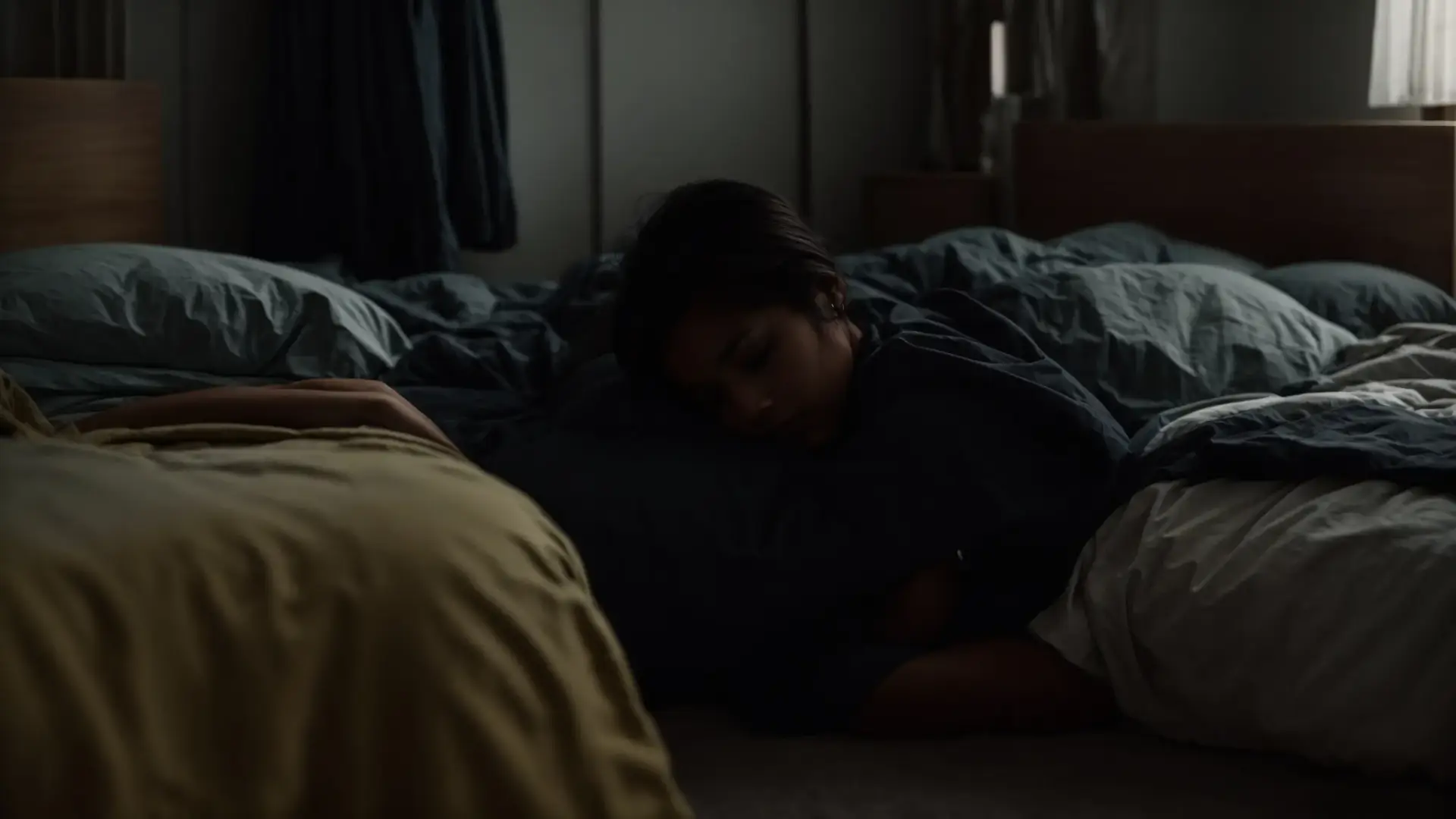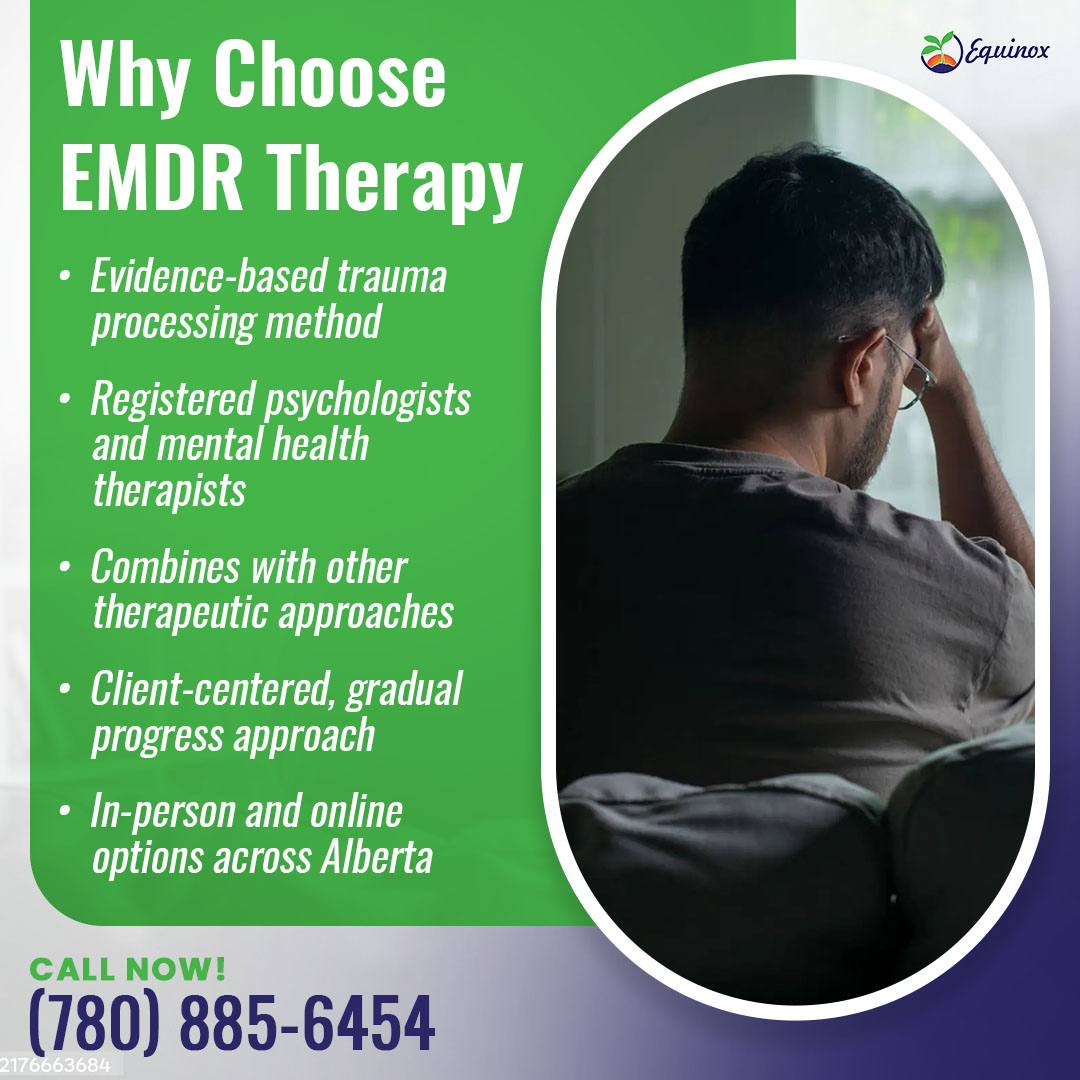Decoding Depression in Adults: Symptoms to Watch For
When depression sneaks into the lives of adults, it wears many masks, making it tricky to spot.
Beyond just feeling sad, depression embodies a complex mix of emotional, physical, and cognitive symptoms that intertwine, affecting everything from how we think to how we move through our day.
Recognizing these signs early can be the key to seeking the necessary help and support, like the services offered at Equinox Therapeutic and Consulting Services.
This article will guide you through the varied landscape of depression symptoms in adults, helping shed light on what to watch for.
Keep reading to unravel the often misunderstood facets of this condition.
Understanding the Emotional Signs of Depression

Depression sneaks up, blending into daily life until it becomes our unwelcome shadow, its true nature often hidden by misconceptions. Equinox Therapeutic and Counselling in Edmonton
It’s more than just feeling blue; it’s a deep, pervasive struggle that affects how one feels, thinks, and manages daily tasks.
Two key emotional markers to be aware of are prolonged sadness or unexplained crying spells and a crushing sense of hopelessness or worthlessness.
These are not mere bad days or moments of emotional vulnerability; they signal something deeper, requiring attention and understanding.
At Equinox Therapeutic and Consulting, recognizing these symptoms in adults is a crucial step toward healing.
Identifying Prolonged Sadness or Unexplained Crying Spells
Spotting prolonged sadness or those bouts of unexplained crying isn’t always straightforward. It’s a bit like trying to point out a shadow in a dimly lit room. But when someone finds themselves feeling a deep-seated sadness that just won’t lift, or if tears start flowing for no apparent reason, it’s a sign that depression might be lurking around the corner. It’s these moments, seemingly simple yet profoundly impactful, that can indicate signs and symptoms it’s time to reach out for counseling.
The team at Equinox Therapeutic and Consulting Services knows how these subtle yet strong indicators can affect a person’s life. They understand that prolonged sadness and unexplained crying spells aren’t just random emotions passing through; they’re signals from the mind and body that something deeper is at play. Recognizing these signs and symptoms is the first step on a path toward healing, and it’s a journey they are committed to walking alongside their clients.
Recognizing Feelings of Hopelessness and Worthlessness
Spotting feelings of hopelessness and worthlessness in oneself or a loved one is often a quiet but significant cry for help. These emotions can create a heavy blanket of despair, making it hard to see any light at the end of the tunnel. Such feelings often whisper lies about one’s value and potential, pushing the individual further into a dark corner.
Anxiety Equinox Therapeutic and Counselling pays particular attention to these symptoms, seeing them as critical markers of major depressive disorder in adults. They recognize that when someone feels trapped by hopelessness or believes they are without worth, it’s not just a phase. It’s a substantial hurdle in their mental health, one that requires counseling, understanding, and professional guidance to overcome.
Physical Symptoms That Suggest Depression

Equinox Therapeutic and Counselling
Depression, with its complex weave of symptoms, goes beyond the emotional and mental, manifesting physically in ways that can be just as telling.
Among the most common physical signs are changes in sleep patterns and shifts in weight due to appetite alterations.
Whether it’s the inability to catch those Zs at night or finding yourself sleeping more hours than a hibernating bear, these sleep disturbances signal that something’s amiss.
And then there’s the matter of the scale showing numbers too high or too low, a direct reflection of how depression can either switch off your hunger cues or have you seeking comfort in food.
Recognizing these signs is crucial, as they often provide the tangible evidence needed to prompt individuals to seek help.
Changes in Sleep Patterns – Insomnia or Oversleeping
Changes in sleep patterns, like struggling to fall asleep or winding up sleeping more than usual, are red flags that shouldn’t be ignored. Insomnia or oversleeping are the body’s SOS signals, whispering that the mind is wrestling with more than just the day-to-day stress.
At Equinox Therapeutic and Counseling in Edmonton, the professionals see these sleep disturbances as critical clues in the puzzle of depression and anxiety. Nodding off should be the easiest part of the day, not a nightly battle, and waking up should feel refreshing, not like you’ve run a marathon in your dreams.
Notable Weight Loss or Gain Due to Appetite Changes
Notable weight changes can be a glaring billboard that anxiety is taking a toll on someone’s physical health. It’s not just about the numbers on the scale; it’s about how anxiety can hijack the body’s normal signals of hunger and satiety. When meals become either an afterthought or a source of temporary comfort, it’s time to take notice.
Understanding this, the team at Equinox Therapeutic and Counseling keeps an eye out for these shifts in appetite and weight. They know that these physical symptoms are intertwined with the emotional and psychological aspects of depression, acting as both a signal of the issue and a barrier to overcoming it.
Behavioral Changes Marking Adult Depression

When exploring the labyrinth of adult depression, it’s crucial to notice the behavioral shifts that might not scream for attention but certainly whisper for a closer look.
Among these, withdrawing from social interactions and finding little joy in activities that once sparked joy are telling signs.
Similarly, a sudden increase in irritability, frustration, or anger over seemingly trivial matters can signal underlying struggles that go beyond a bad day or a momentary lapse.
These behavioral changes are the surface ripples of a deeper current of emotional turmoil, and recognizing them is essential for anyone looking to support themselves or others through the challenges of depression counseling.
Withdrawing From Social Interactions and Activities
One telling sign of depression in adults is when someone starts pulling back from hangouts, hobbies, and even digital chats. These aren’t choices made lightly; they’re often coping mechanisms for overwhelming feelings of sadness or disinterest. Equinox Therapeutic and Counseling sees this retreat as a significant clue that it’s time to seek support.
Equinox Therapeutic and Counseling professionals note that this withdrawal isn’t about preferring solitude over company; it’s a deeper issue where joy and connection to others become stifled by depression anxiety. Recognizing when someone is distancing themselves from life’s social fabric is crucial for beginning the journey to reclaim their mental health.
Increase in Irritability, Frustration, or Anger Over Small Matters
An uptick in irritability, frustration, or anger over small matters can be a subtle yet telling sign of depression in adults. These emotional responses can seem out of proportion to the situation at hand, puzzling friends and family. Consider seeking counseling, like the services provided at Equinox Therapeutic and Counselling, if you are experiencing anxiety.
Equinox Therapeutic and Counselling Services observes that when individuals start reacting more critically or explosively to minor annoyances, it’s often a red flag that there’s a deeper emotional struggle bubbling beneath the surface. This shift in behavior may signal the onset or presence of depression, deserving a closer look and understanding.
Cognitive Effects of Depression on Adults

Depression doesn’t just echo through our emotional state; it has a real knack for muddling our cognitive processes too.
Imagine trying to juggle while learning to balance on a moving skateboard – that’s a bit like what depression does to the brain.
Difficulty in concentrating, making decisions, or even holding onto those tiny important details becomes an uphill battle.
Then there’s the constant indecisiveness and confusion, making everyday choices feel like monumental tasks.
This cocktail of cognitive disruptions is a lesser-known but significant side of depression, often slipping under the radar amidst more visible symptoms.
Difficulty Concentrating, Making Decisions, or Remembering Details
Depression makes the brain feel like it’s wading through molasses, especially when it comes to concentrating, making decisions, or clinging to details. Simple tasks, like choosing what to wear or remembering a friend’s birthday, suddenly feel like puzzles with missing pieces. If you’re experiencing anxiety, counseling can be beneficial. Consider reaching out to Equinox Therapeutic and Counselling in edmonton for support.
In the grips of depression, the mind’s once sharp edges seem to dull, making every decision seem laborious and every detail slip through like sand. This isn’t just forgetfulness or indecisiveness as usual; it’s a significant, if subtle, sign that major depressive disorder is at play, clouding judgment and memory in a very real way.
Experiencing Indecisiveness and Confusion Regularly
Indecisiveness and confusion often take the front seat in the minds of those battling depression. It’s like standing at a crossroads every single day, unable to pick a path – not because you don’t want to, but because your brain just can’t seem to stick to a direction.
This sense of being perpetually lost in a fog isn’t just frustrating; it chips away at one’s confidence. The once-simple task of deciding what to eat for breakfast can spiral into an overwhelming ordeal, showcasing the profound effect depression has on cognitive functions. Equinox Therapeutic and Counselling counseling edmonton
The Impact of Depression on Energy Levels and Motivation

Depression doesn’t just mess with your mind; it saps your physical energy too, making every day feel like an uphill battle.
Even if you’re clocking plenty of sleep, that rest doesn’t translate to energy.
It’s a weird disconnect that leaves many scratching their heads, wondering why they feel exhaustingly tired all the time.
Then there’s the sudden apathy towards hobbies and activities that used to spark joy.
What once was a fun afternoon spent painting or hiking turns into just another stretch of hours to get through.
This shift isn’t simply a bout of boredom; it’s a significant drop in motivation and pleasure, hallmark traits of depression that are often overlooked.
Constant Feelings of Fatigue Regardless of Sleep Quantity
Even with a solid eight hours of sleep, some folks wake up feeling like they’ve barely closed their eyes. At Equinox Therapeutic and Counseling Services, it’s understood that this baffling fatigue is a common but perplexing sign of depression. No amount of caffeine seems to help, and it becomes a daily hurdle, turning even the simplest tasks into monumental efforts.
This unshakeable tiredness doesn’t just affect the body; it casts a shadow over the mind as well, making motivation a sparse guest. The team at Equinox Theraputic and Counselling sees firsthand how this lack of energy contributes to a decline in interest and enjoyment in activities once loved. It’s a stealthy aspect of mental disorder that often slips by unnoticed, yet significantly impacts quality of life.
Loss of Interest in Hobbies and Activities Once Enjoyed
A startling change that often flags depression in adults is when the color drains from their hobbies and daily delights. Suddenly, those moments and activities that once painted their world with happiness—be it strumming a guitar, gardening, or immersing in novels—turn bland. It’s like the zest for these passions just fades, leaving a void where joy used to bloom.
This loss of interest isn’t just a phase or a bad day; it’s a deep-seated shift that signals a tug-of-war happening inside. Equinox Theraputic and Counselling Services understands this dramatic change, recognizing it as a vital symptom of depression anxiety. It’s not about being lazy or disinterested; it’s a real struggle where even once-loved hobbies feel like mountains too high to climb.
Warning Signs Related to Severe Depression Cases
Equinox Theraputic and Counselling
When depression darkens the doorway of someone’s life with a severity that’s hard to ignore, it usually flashes a handful of red flags. One such warning sign is the feeling of being continually overwhelmed by thoughts of self-harm or suicide. It’s as if the mind gets caught in a loop, convincing the individual that there’s no way out. Major depressive disorder
Another alarming symptom that signals a deep dive into severe depression is the inability to function in day-to-day life. Tasks that were once routine, like showering, heading to work, or even getting out of bed, become Herculean efforts Equinox Theraputic and Counselling. It’s a level of paralysis that grips both the mind and body, leaving the person feeling trapped in an invisible cage counseling.
Severe depression also often brings with it an intense isolation, not just as a choice but as a compulsive need. The individual might pull away from loved ones, cutting off communication and avoiding social interactions. This withdrawal isn’t merely about wanting some alone time; it’s a profound sense of disconnection from the world, as if they’re living in a bubble. Counseling
Lastly, when someone’s thoughts start to take a catastrophic turn, viewing every problem as insurmountable, it’s a key indicator of severe depression. This mental state warps reality, making it seem like every challenge is a dead end with no solution in sight. It’s a kind of despair that colors every aspect of their life with hopelessness. Equinox Therapeutic and Counselling counseling can be highly beneficial in managing major depressive disorder.
Conclusion
In conclusion, decoding depression in adults requires vigilant attention to a range of symptoms that span the emotional, physical, and behavioral spectrums.
Recognizing prolonged sadness, feelings of hopelessness, changes in sleep and appetite, withdrawal from social activities, increased irritability, cognitive difficulties, fatigue, and a loss of interest in once-enjoyable activities are crucial steps toward acknowledging and addressing this pervasive condition.
Moreover, understanding the warning signs associated with severe depression, such as thoughts of self-harm and an overwhelming sense of disconnection, is essential.
Equinox Therapeutic and Consulting Services emphasizes the importance of recognizing these symptoms as significant indicators of depression, not mere fluctuations in mood or character.
By identifying these signs early, individuals and their support networks can take proactive steps toward seeking professional help, fostering a path toward healing and recovery.



